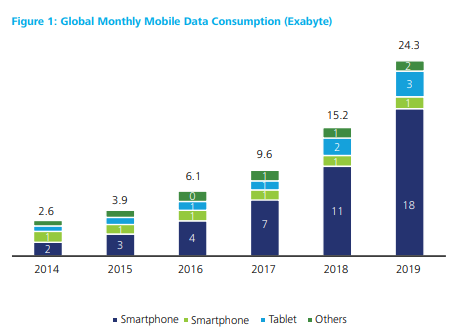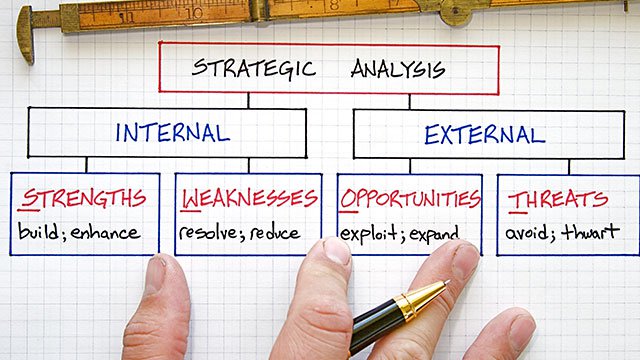Digital marketing transformation is the shift in organisational thinking away from favouring traditional marketing channels to prioritising digital media.
Also known as digital first, it means removing the bias towards traditional or conventional marketing channels, and putting digital at the heart of your thinking and all your marketing tactics.
Technological developments are accelerating resulting in increased mobile digital consumption which is changing customer expectations, meaning your marketing practices need to evolve to keep pace.
A digital marketing transformation project means transforming your marketing culture and processes to be ‘digital first’, not simply viewing digital marketing as an add on.
The 5 step approach to digital marketing transformation
Businesses are becoming aware that taking a digital first approach is key to delivering a successful marketing strategy.
But what is more difficult is translating that understanding into a practical plan of action that will introduce essential change in thinking across your organisation. The full commitment of the leaders in the business to this transformational journey is essential.
There are 5 basic steps to starting a digital marketing transformation project:
- Current situation analysis – undertake a review and assessment of the current state of digital in your marketing activities focusing on the customer experience across the main digital channels. Review the activities of your competitors, other players in your sector, and other digital marketing leaders across a range of sectors.
- Create the vision – create a vision for digital and why it is critical to become ‘digital first’.
- Build the business case – focus on the value of digital to your business and how it will create benefits for both the short and long-term. Identify your key performance indicators, and put measures in place that will help you to keep momentum when the going gets tough.
- Develop your digital marketing strategy – identify the key strategic strands of your new digital marketing strategy, and drill down to the tactical campaigns.
- Continuous review and improvement – embed a process of continuous improvement with a ‘test and fail fast’ mentality. Embarking on new digital marketing techniques is critical to stay ‘digital first’
The digital marketing transformation challenge
We are at a unique time in history where the rate of digital change has never been so rapid.
According to recent studies by Deliotte, Huffington Post, PWC, and Information Age there are four key drivers to this rate of change:
- Rate of technological change
- Device connectivity and mobile data consumption
- Digital media consumption
- Big data
One key transformation we’re seeing as an agency is the increasing usage and therefore importance of mobile marketing to brands.
Global mobile data consumption is increasing, device connectivity across the globe is improving and therefore there are more potential consumers for brands to reach online via mobile across the globe.

The shift toward mobile digital consumption is impacting online behavior, with technology such as voice and visual search making online shopping more convenient for many consumers, another reason why traditional bricks and mortar retailers such as Debehams are now investing so heavily in their ecommerce functionality.
The value of digital marketing
The value of digital is not fully understood by most brands and in many cases isn’t being measured effectively. This is one of the fundamental reasons why the adoption of digital has been slow in businesses. Often there is a marriage to more traditional marketing as that’s what has worked in the past.
In reality, digital marketing allows brands to target new customers and more effectively measure return on investment through the vast range of web analytics platforms available today.
With the ability to transcend geographical boundaries, brands with a strong digital presence can attract new customers to their business not possible to those relying solely on traditional marketing techniques.
Rising customer expectations
We live in a digital world where customer expectations are growing exponentially. This is one of the key driving forces behind digital marketing transformation. According to emarketer the average UK adult spends 1 hour 59 minutes on a desktop and 1 hour 58 minutes on a mobile device per day. Digital media consumption (web browsing, social media etc.) accounted for nearly 50% of this device usage.
It is this increase in digital media consumption that’s increasing consumer expectations. Customer expectations are mainly driven by the most visited platforms on the internet such as: Google, Facebook and Amazon.
As a result, today’s online shoppers expect options for fast shipping and quick purchasing as per Amazons shopping experience, seamless transitions between stores and the web, accurate and timely information, and rich experiences both online and offline.
With digital marketing we have to face up to reality: the internet giants such as Amazon, Google and Facebook own the landscape, we do not. In order to effectively become digital first, we must consistently analyse the developments each of the big players are making, adapting quickly to changes enforced by companies such as Google and Facebook while keeping up with emerging technological trends (voice and visual search) to gain first mover advantage.
Conclusion
Within this article we have highlighted why becoming ‘digital first’ can be so important for the success of your business, and how customer expectations are increasing rapidly due to online giants such as Amazon, Google and Facebook.
Brands hoping to succeed online need to be able to offer convenience in the form of speed, accessibility and UX to match the leading online players that have driven changes in consumer expectations, no longer benchmarking themselves against their traditional bricks and mortar competitors.
If you’re interested in transforming your business and developing a digital first strategy then why not get in touch today and find out how we can help.


